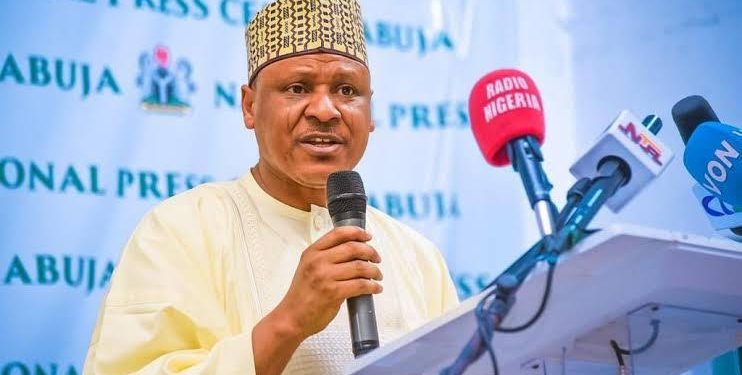President Bola Tinubu has ordered all Ministries, Departments, and Agencies (MDAs) to immediately stop procuring foreign goods and services that have local alternatives, in a move aimed at strengthening the naira and revitalizing Nigeria’s economy.
Speaking during Monday’s Federal Executive Council meeting at the State House in Abuja, Tinubu launched the “Nigeria First Policy,” a directive designed to promote local content, instil national pride, and curb the outflow of public funds to foreign markets. He emphasized that the new policy signals a shift toward economic self-reliance, urging the nation to “make what we use and use what we make — not as a slogan, but as a national commitment.”
The president praised recent economic reforms such as the removal of fuel subsidies, improved infrastructure, and a better business climate, noting that they are already delivering results. He cited increased oil output, rising foreign reserves, and significant investment pledges from major international companies including Shell, Total, ExxonMobil, and SALIC of Saudi Arabia.
Tinubu highlighted agriculture as a critical sector for economic transformation and job creation, pointing to the 2024 launch of the National Sugar Master Plan II as an example of enforcing backward integration. He stressed the need for greater discipline and implementation to boost domestic production.
However, the president expressed concern about the private sector’s limited response to the government’s economic initiatives, attributing this to a longstanding preference for quick deals over long-term investments. He said public funds must no longer benefit intermediaries who send value abroad instead of building it locally.
To enforce the Nigeria First Policy, Tinubu directed the Bureau of Public Procurement (BPP) to update its guidelines to prioritize local products and create a Local Content Compliance Framework. All procurement officers are to report directly to the BPP, and a national registry of qualified Nigerian manufacturers and service providers will be established.
MDAs are now required to audit their procurement plans and align them with the new directives. Any MDA seeking to procure foreign goods must obtain a waiver from the BPP. Contracts involving unavailable local goods or services must include provisions for technology transfer, domestic production, or skills development.
Tinubu warned that violations of the policy would result in penalties, including cancelled procurements and disciplinary action, as he declared, “Let this day mark the beginning of a new era of local enterprise, self-belief, and national pride.”










